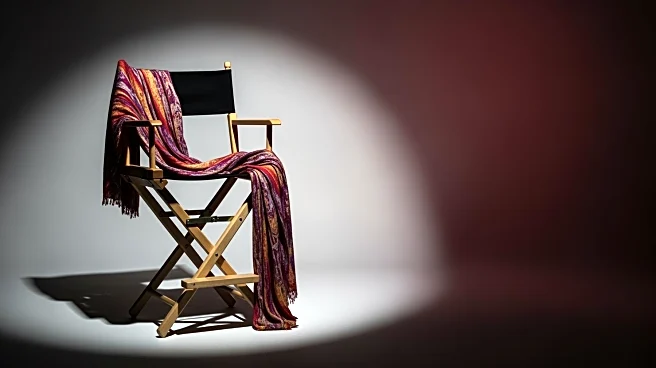What's Happening?
Jennifer Lawrence, a prominent Hollywood actor, has sparked a significant debate within the film industry with her recent comments on directing styles. During a press Q&A on November 6, 2025, Lawrence remarked that she has observed a commonality among
female directors, noting that they tend not to 'over-direct' compared to some male directors. This statement has been widely circulated in media outlets such as Vulture and Deadline, leading to discussions about gender dynamics in directing. The film associated with Lawrence's comments opened on 1,983 screens and achieved a projected $2.7 million in its three-day opening, adding commercial stakes to the ongoing debate.
Why It's Important?
Lawrence's comments have ignited a broader conversation about gender roles and directing styles in Hollywood. The remark has divided opinions, with some applauding the idea of collaborative safety over performative control, while others criticize it as an unfair generalization of male directors. This debate is significant as it reframes discussions about authorship, set tone, and credit for performance choices, potentially influencing hiring practices and awards narratives. The visibility of Lawrence, a high-profile actor, means her comments could shift industry perceptions and impact future directorial decisions.
What's Next?
The controversy surrounding Lawrence's comments is likely to lead to further discussions and thinkpieces defending various directorial styles. Industry insiders may weigh in on how set culture affects performances, and the debate could influence awards season, where perception and narrative are crucial. The remark might also prompt a push for clearer on-set standards, although it remains to be seen whether this will result in meaningful change or simply another viral skirmish.
Beyond the Headlines
The debate highlights the complexities of gender dynamics in Hollywood, where comments like Lawrence's can simplify intricate workplace issues into binary arguments. Critics argue that context matters, as Lawrence referenced Lynne Ramsay's approach, while defenders warn that such remarks risk reinforcing tribal responses in hiring and reviews. This situation underscores the need for nuanced discussions about directorial methods and the impact of gender on creative processes.
















